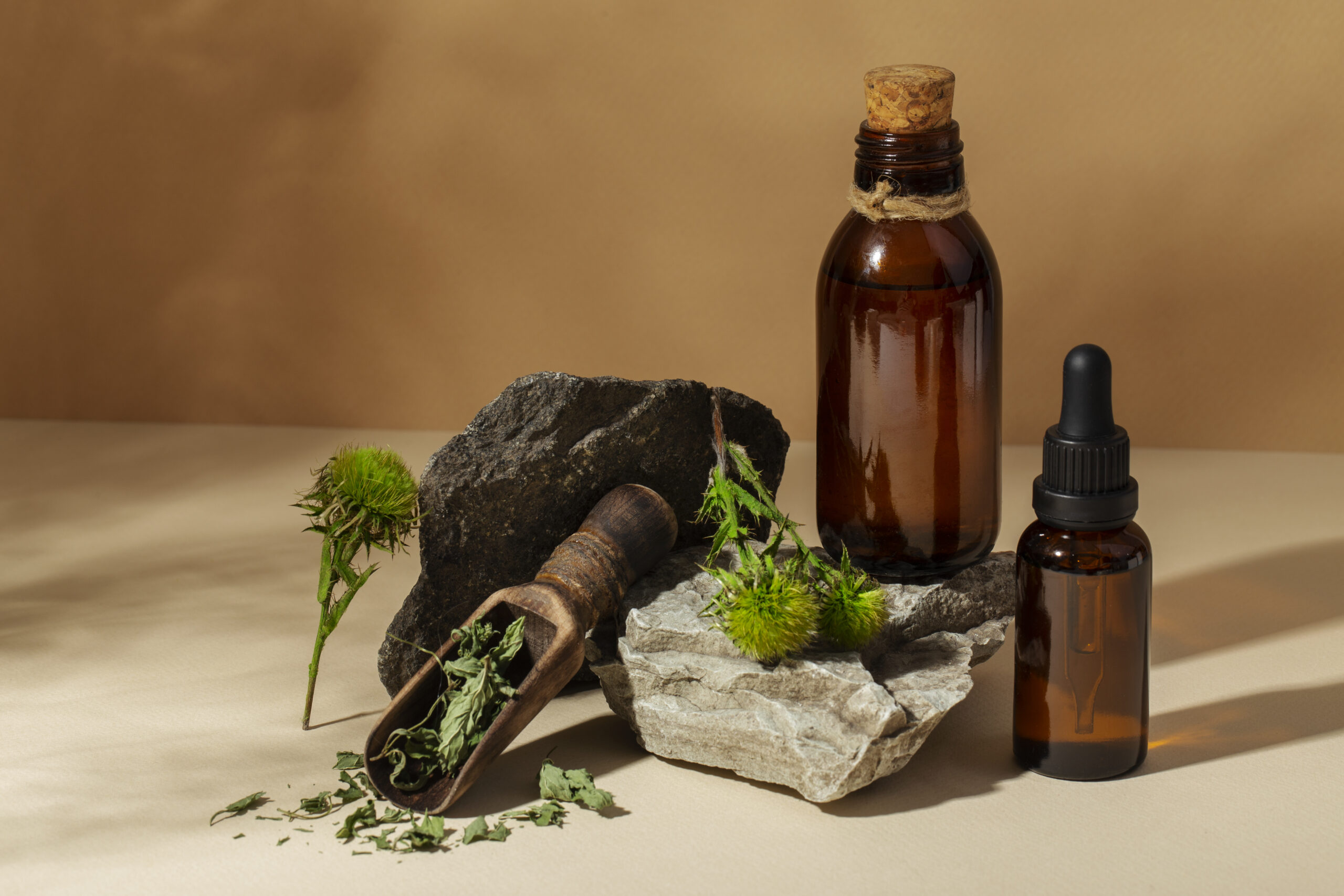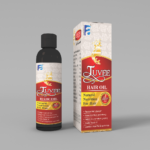INTRODUCTION
When it comes to natural oils for hair and skin care, coconut oil and castor oil are two popular choices that have garnered widespread attention for their purported benefits. Both oils boast a range of properties that can nourish, moisturize, and protect, but which one is better suited to your needs? Let’s explore the characteristics of each to help you make an informed decision.
Coconut Oil: The Versatile Moisturizer
Derived from the meat of coconuts, coconut oil has long been prized for its versatility and hydrating properties. Rich in fatty acids, particularly lauric acid, coconut oil is easily absorbed into the skin and hair, providing deep moisture without feeling greasy. Here are some of the key benefits of coconut oil:
- Hydration : Coconut oil is an excellent emollient, making it ideal for moisturizing dry skin and hair It helps to restore the skin’s natural barrier function, preventing moisture loss and leaving the skin soft and supple.
- Antibacterial and Antifungal : Lauric acid exhibits antimicrobial properties, making coconut oil effective against bacteria, fungi, and viruses. It can help to combat acne, dandruff, and other microbial-related skin and scalp issues.
- Hair Conditioning : Coconut oil can penetrate the hair shaft, nourishing and strengthening hair from within. It helps to reduce protein loss, prevent breakage, and improve the overall health and appearance of the hair.
- Makeup Remover : Coconut oil can be used as a natural makeup remover, gently dissolving makeup and impurities while hydrating the skin.
Castor Oil: The Nutrient-Rich Elixir
Derived from the seeds of the castor plant, castor oil is a thick, viscous oil known for its nutrient-rich composition. It contains high levels of ricinoleic acid, a monounsaturated fatty acid with anti-inflammatory and moisturizing properties. Here’s why castor oil is favored by many:
- Hair Growth Stimulant : Castor oil is often touted as a potent hair growth stimulant. Its ricinoleic acid content helps to improve blood circulation to the scalp, nourishing hair follicles and promoting healthy hair growth.
- Scalp Health : Castor oil’s antimicrobial and anti-inflammatory properties make it beneficial for scalp health. It can help to soothe irritation, reduce dandruff, and maintain a healthy scalp environment for optimal hair growth.
- Thickening and Strengthening : Due to its dense consistency and nutrient-rich composition, castor oil can help to thicken and strengthen hair strands, reducing the appearance of thinning hair and split ends.
- Skin Moisturizer : While thicker than coconut oil, castor oil can still be used as a skin moisturizer, particularly for dry or rough areas such as elbows, knees, and heels.
Choosing the Right Oil for You

When deciding between coconut oil and castor oil, consider your specific needs and preferences:
– Coconut Oil may be preferable if you’re looking for a lightweight, multipurpose oil that provides deep hydration without feeling heavy on the skin or hair. It’s suitable for all skin types, including oily and acne-prone skin.
– Castor Oil may be ideal if you’re focusing on promoting hair growth, improving scalp health, or addressing specific hair concerns such as thinning or breakage. Its thick consistency makes it best suited for use on hair or targeted areas of the skin.
CONCLUSION:
Both coconut oil and castor oil offer unique benefits for hair and skin care. Whether you’re seeking intense hydration, hair growth stimulation, or scalp nourishment, incorporating these natural oils into your routine can help you achieve healthier, more radiant skin and hair. As with any skincare product, it’s essential to perform a patch test before using coconut oil or castor oil extensively, especially if you have sensitive skin or allergies. Additionally, consult with a dermatologist or healthcare professional if you have any concerns or specific skin conditions.
DISCLAIMER: The information provided in this blog is for educational and informational purposes only and is not intended as medical advice. The content is not intended to diagnose, treat, cure, or prevent any disease. Readers are advised to consult with a qualified healthcare professional regarding their specific health concerns and before starting any herbal remedies or health regimen. While every effort has been made to ensure the accuracy and completeness of the information presented, the author and publisher assume no responsibility for any errors or omissions. The use of herbal remedies and traditional medicine should be undertaken with caution and under the guidance of a qualified healthcare practitioner, especially for individuals with pre-existing medical conditions or those taking medications. The inclusion of specific herbs or formulations in this blog does not imply endorsement or recommendation. Individual responses to herbal remedies may vary, and it is important to consider individual health needs and sensitivities. Always read product labels and instructions carefully before use. By accessing and using this blog, readers acknowledge and agree to the terms of this disclaimer and release the author and publisher from any liability arising from the use or misuse of the information provided.




